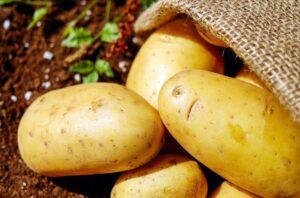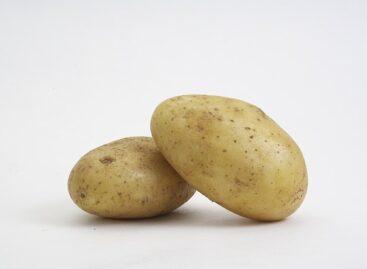The price of several basic foods has increased, and the price of potatoes has skyrocketed in discount stores
Privátbankár measured minimal price increases in domestic discount chains at the end of June: food inflation can be kept under control for now, but prices have started to move again.
 According to the latest Discount Price Basket survey conducted in Lidl, Aldi and Penny stores, the average shopping basket of the three chains cost 12,477 forints at the end of June, compared to 12,333 forints in May. This represents an increase of 1.16% in a single month.
According to the latest Discount Price Basket survey conducted in Lidl, Aldi and Penny stores, the average shopping basket of the three chains cost 12,477 forints at the end of June, compared to 12,333 forints in May. This represents an increase of 1.16% in a single month.
Privátbankár’s monthly comparative price survey focuses primarily on basic foodstuffs – such as bread, dairy products, meat, vegetables and household products. The June data of the research indicate that although there is no reason for general panic, prices have started moving again, and in several cases significant fluctuations have been experienced.
According to the editorial office, both significant price increases and price decreases occurred during the past month. A detailed product-level breakdown has not yet been released, but based on the trends, it is likely that the fluctuations may be due to seasonal changes in raw material prices, fluctuations in international shipping costs, and the promotional strategies of individual chains.
The slight increase in prices does not in itself indicate a structural inflationary turn, but experts continue to warn that periodic global disruptions – such as geopolitical tensions affecting the fertilizer market or rising prices of agricultural inputs – could put pressure on consumer prices again in the medium term.
Price competition between discount chains remains fierce, which previously helped to reduce prices. However, based on the current survey, it seems that this pressure has eased somewhat in recent weeks, or at least was not sufficient to offset the general increase in costs.
The Discount Price Basket surveys indicate on a monthly basis the development of domestic purchasing power in the price-sensitive consumer segment – that is, where volatility is most quickly reflected at the checkout counters.
Related news
Fries have become cheaper at PENNY
🎧 Hallgasd a cikket: Lejátszás Szünet Folytatás Leállítás Nyelv: Auto…
Read more >Imre Hubai: One billion cubic meters more water is being retained in the landscape than ever before
🎧 Hallgasd a cikket: Lejátszás Szünet Folytatás Leállítás Nyelv: Auto…
Read more >Related news
The government is supporting dairy farmers with a new measure
🎧 Hallgasd a cikket: Lejátszás Szünet Folytatás Leállítás Nyelv: Auto…
Read more >








